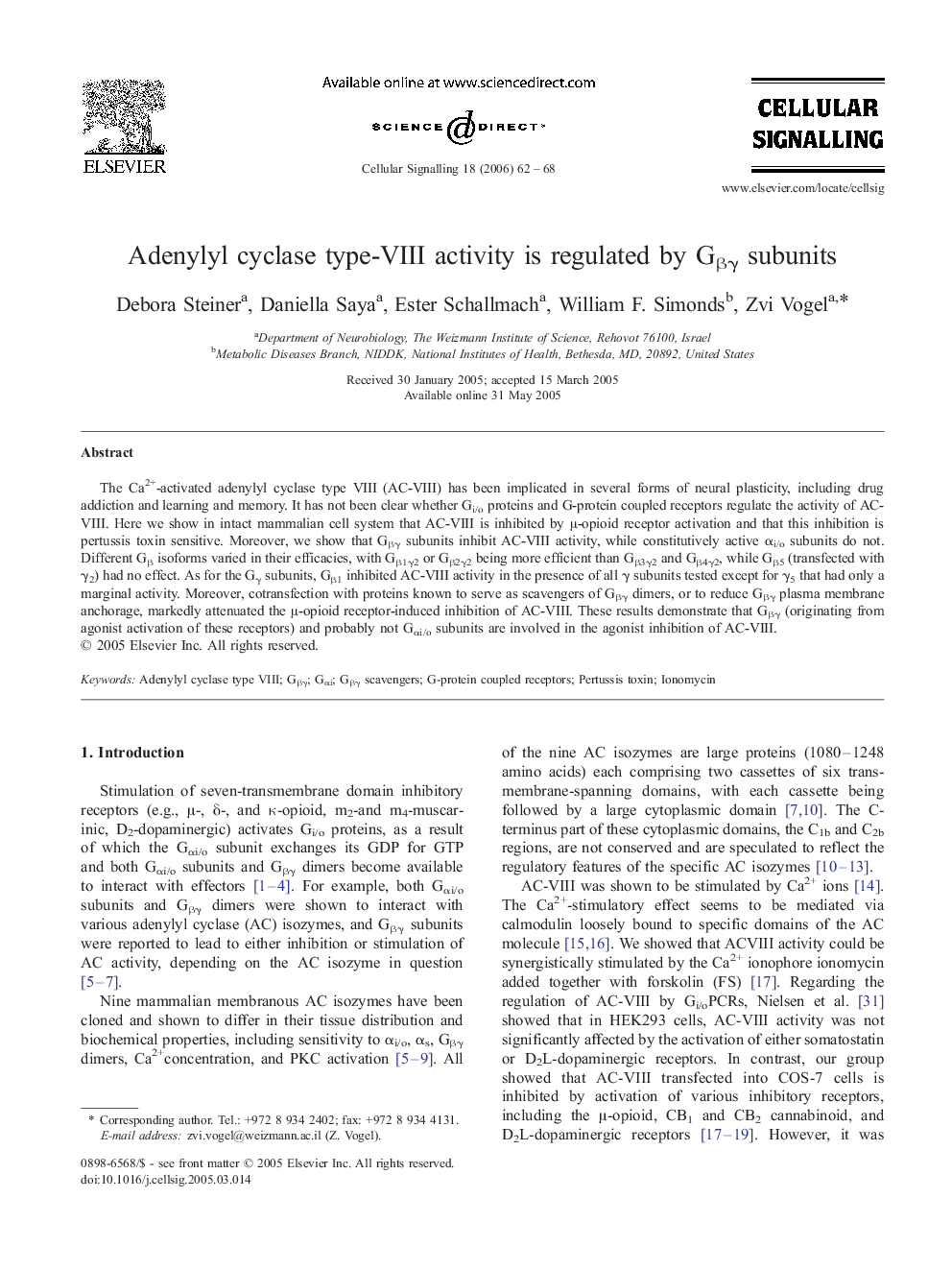| Article ID | Journal | Published Year | Pages | File Type |
|---|---|---|---|---|
| 1964990 | Cellular Signalling | 2006 | 7 Pages |
The Ca2+-activated adenylyl cyclase type VIII (AC-VIII) has been implicated in several forms of neural plasticity, including drug addiction and learning and memory. It has not been clear whether Gi/o proteins and G-protein coupled receptors regulate the activity of AC-VIII. Here we show in intact mammalian cell system that AC-VIII is inhibited by μ-opioid receptor activation and that this inhibition is pertussis toxin sensitive. Moreover, we show that Gβγ subunits inhibit AC-VIII activity, while constitutively active αi/o subunits do not. Different Gβ isoforms varied in their efficacies, with Gβ1γ2 or Gβ2γ2 being more efficient than Gβ3γ2 and Gβ4γ2, while Gβ5 (transfected with γ2) had no effect. As for the Gγ subunits, Gβ1 inhibited AC-VIII activity in the presence of all γ subunits tested except for γ5 that had only a marginal activity. Moreover, cotransfection with proteins known to serve as scavengers of Gβγ dimers, or to reduce Gβγ plasma membrane anchorage, markedly attenuated the μ-opioid receptor-induced inhibition of AC-VIII. These results demonstrate that Gβγ (originating from agonist activation of these receptors) and probably not Gαi/o subunits are involved in the agonist inhibition of AC-VIII.
